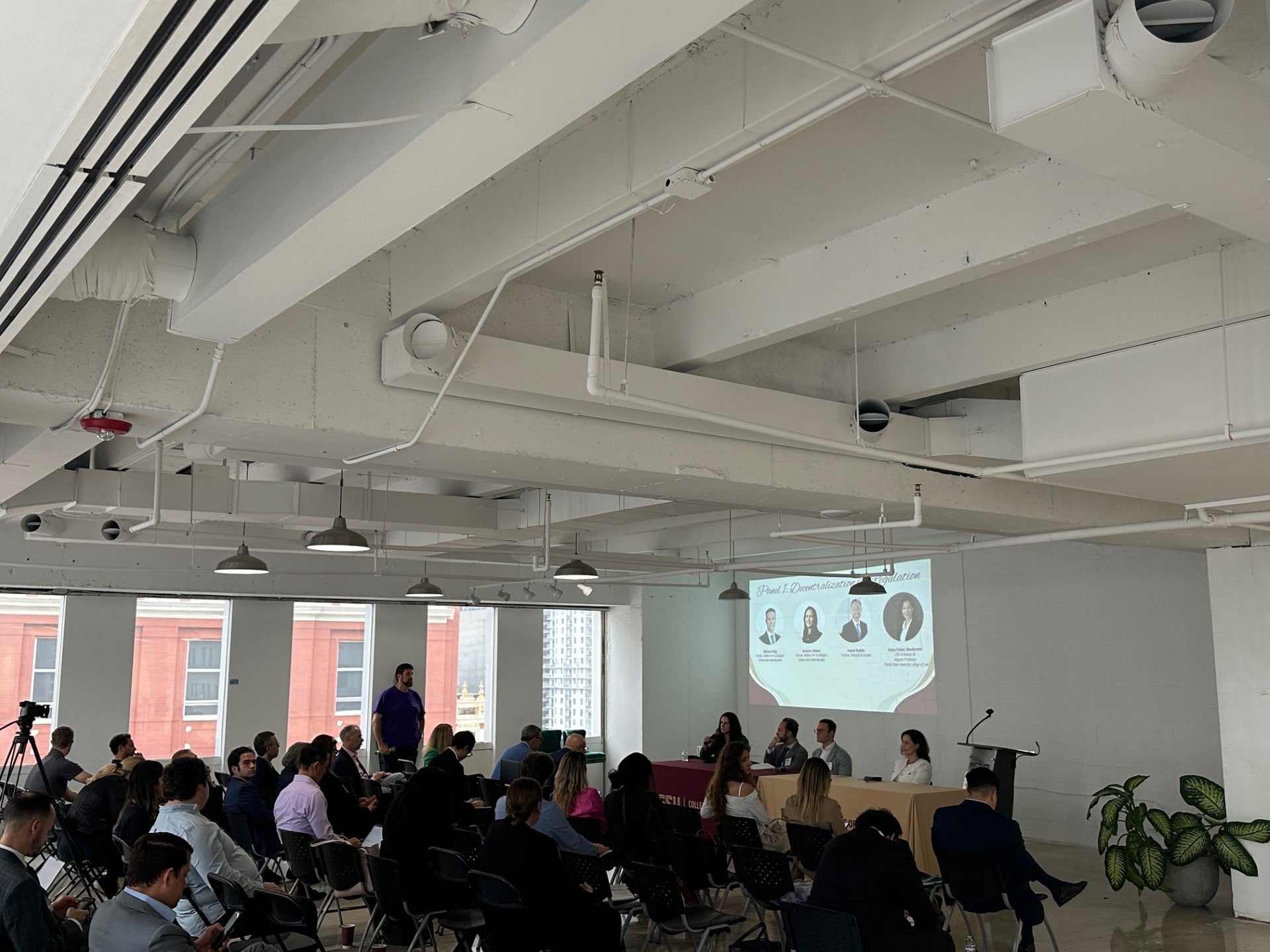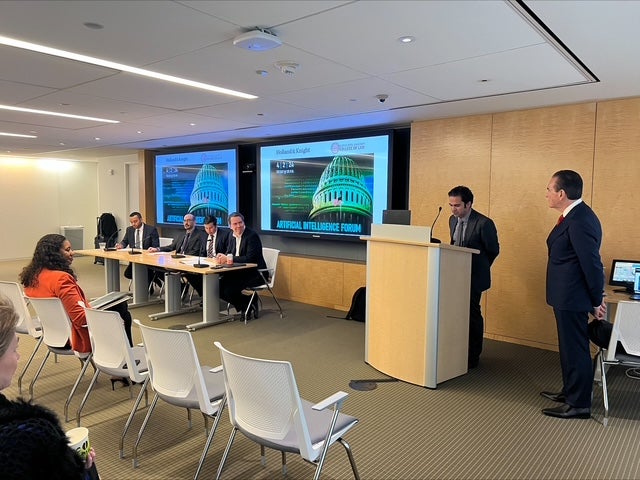Every academic year, the Institute of Law, Technology & Innovation hosts a conference on critical emerging topics at the intersection of law and technology. These conferences bring together leading experts, policymakers, and industry innovators to explore and address the latest challenges and opportunities shaping the future of legal and technological landscapes.
2024-25 Conference

Blockchain and Digital Assets
Miami, FL - November 18, 2024
The Institute for Law, Technology & Innovation hosted its second annual conference in Miami on November 18, 2024. This exclusive event explored cutting-edge topics at the intersection of decentralization, blockchain, and AI. We were honored to feature Harvard Law Professor Larry Lessig as our keynote speaker, alongside distinguished panelists from law, technology, and finance.
2023-24 Conference

Inaugural Conference on AI and the Law
Washington, D.C. - April 2, 2024
The Institute for Law, Technology & Innovation at Florida State University’s College of Law partnered with Holland & Knight LLP in Washington, D.C., to host an informative and thought-provoking symposium on artificial intelligence.
The half-day conference brought together academics, policy market regulators, and thought leaders from around the world to discuss the promises and perils of artificial intelligence. Held at Holland & Knight’s offices in Washington on April 2, 2024, the symposium had about 80 in-person attendees, including several FSU Law students who made the trip to Washington and nearly 800 virtual attendees.
